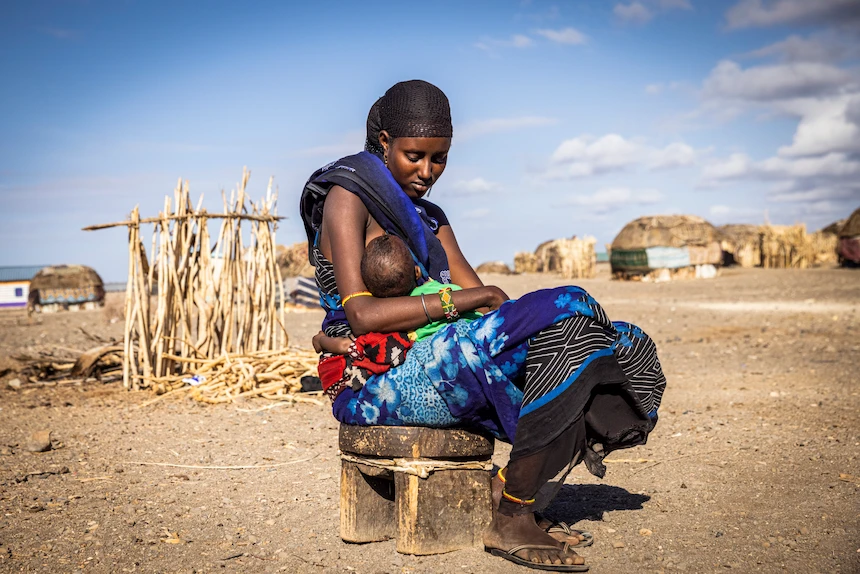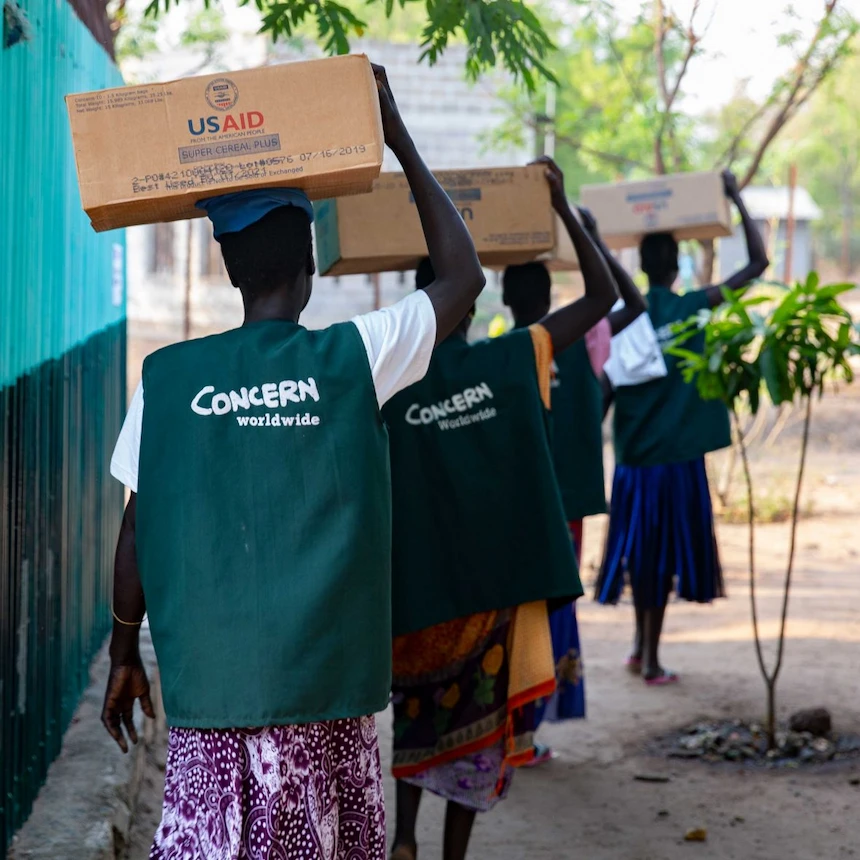Breastmilk is a wonder of nature and a scientific marvel — there’s no disputing that. But what happens when a lactating mother runs short of food or nutrients for herself?
A mother's worst fear
Our nutrition teams come across the phenomenon all the time — lactating mothers who report that their supply of breast-milk has either been severely reduced or entirely depleted due to their own nutritional situation. It’s even more prevalent now, as millions of women across the Horn of Africa go hungry because drought and economic pressures have triggered widespread food insecurity.
When we spoke to Sallo Okile at her home in Northern Kenya recently, she told us this: “My main worry is where I'm going to get food for the next day and to feed my baby. It is really tough because I don't get enough food, so that means there's less breast-milk.”

The case for breastfeeding
Firstly, it’s important to understand the importance of breastmilk in child health. The World Health Organization (WHO) says this:
“Breast-milk is the ideal food for infants. It is safe, clean, and contains antibodies which help protect against many common childhood illnesses. Breast-milk provides all the energy and nutrients that the infant needs for the first months of life, and it continues to provide up to half or more of a child’s nutritional needs during the second half of the first year, and up to one third during the second year of life.”
“Over 820 000 children’s lives could be saved every year"
Given that young children are the most vulnerable section of the population (because their immune system is still developing) Concern and hundreds of other organizations promote exclusive breastfeeding for the first six months, appropriate complementary feeding alongside breastfeeding after six months, and continued breastfeeding for up to two years. The WHO estimates that “over 820 000 children's lives could be saved every year among children under 5 years, if all children 0–23 months were optimally breastfed.”
Support Concern's work with mothers around the world

Maternal imperative
So, how does hunger impact breastfeeding and what can we do about it?
Concern’s Anushree Rao, says the maternal breastfeeding system is entirely focused on the baby’s well-being. “The mother’s body will always try to regain the optimal level of nutrition to produce breast-milk, even if it is at the expense of her own nutritional status. If she is malnourished, gradually the mother’s nutrient reserves — her bones, her blood, etc. — will be used in the production process. Then at some point she will be too frail and too weak, and her breast-milk will not be as nutritious as it should be.”

"Breastfeeding is a hormonal process"
Often though, it’s another factor that has the greatest effect on the production and flow of breast-milk. Every mother knows how stressful it can be to successfully breastfeed, but the additional stresses that come with living in an emergency scenario can significantly add to the problem. “Breastfeeding is a hormonal process and stress impacts the production of essential hormones like Prolactin and Oxytocin,” Anushree explains. “The mental and emotional trauma of the woman’s situation and the feelings of self-doubt will affect the bond between mother and child, and the physical process of breastfeeding will suffer as well — it’s a feedback loop.”
Mother to Mother
Because there’s more than one cause, there’s also more than one solution to this problem. Often, the first line of support is on an emotional level. When Naomi Kpehyou's son was only a month old, she began to believe that her breast milk was not good enough and she should give him formula milk. Persuaded by a community health worker to attend the local mothers group near her home in Liberia, she found reassurance and renewed confidence. "The advice and help I have received is good," she said. "It makes me happy.”
Preventing the situation from arising in the first place is of course the ideal. That means regular screening of pregnant women and lactating mothers for signs of malnutrition and the provision of nutrient-rich supplementary foods for those in need. Sadly, millions of women are still beyond the reach of essential services like this.

Supplementary feeding can come with its own problems too, ironically because of natural maternal selflessness. During lean times a Mom will often share her supplementary food — a sort of enriched cereal — among the whole family, meaning it doesn’t have the full effect on her system. That’s why information and education is of paramount importance and is always built into every quality nutrition program.
"The benefits for both mother and child are huge"
Anushree Rao says that reduced or arrested breastfeeding is quite common in challenging contexts, but she also emphasizes the importance of dealing with the issue. “Fundamentally, the decision to breastfeed rests entirely with the mother and we have to respect that. But the benefits for both mother and child are huge and we try to promote breastfeeding at every opportunity.”


